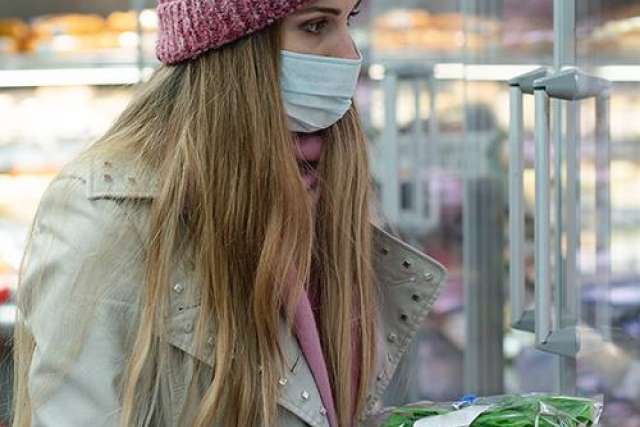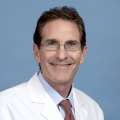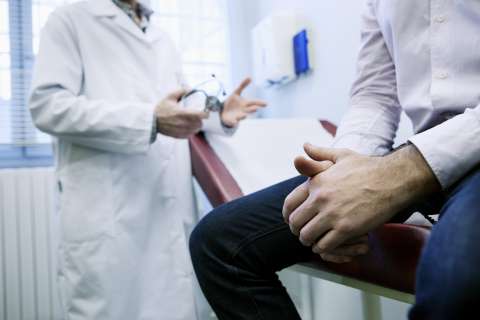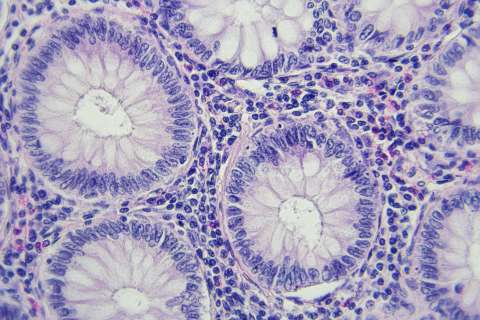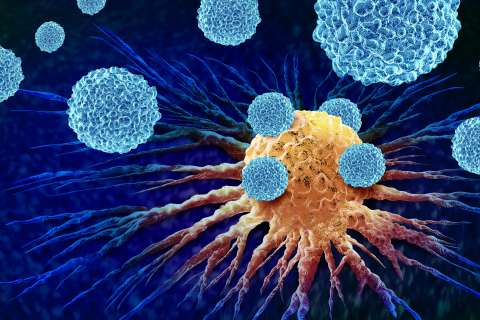While COVID-19 has touched the lives of everyone, some people have been more affected than others. We asked UCLA Health experts from cardiology, pulmonology, oncology, mental health, internal medicine and diet and nutrition to weigh in on how people in high-risk groups, as well as the general public, can protect themselves and stay healthy during this pandemic.
How to stay heart healthy
“Individuals at any age with cardiovascular risk factors, including high blood pressure, diabetes, obesity or pre-existing cardiovascular disease, are at much higher risk for serious complications of COVID-19. These individuals should take special precautions to avoid potential exposure. Even during this time of COVID-19, when people may have fears about going to a hospital, it is critical for anyone who thinks they are having a heart attack or stroke to call 911 at the first signs or symptoms.
- Gregg Fonarow, MD, the Eliot Corday Chair in Cardiovascular Medicine and Science and director of the Ahmanson-UCLA Cardiomyopathy Center
Why we all need to wear face coverings
“L.A. County is mandating that everyone wear a mask when going out to shop, and we should respect this. Studies are showing that many patients — between 10 and 30 percent — can be infected with COVID-19 but remain asymptomatic. In this scenario, wearing a mask can decrease the spread of the virus from the asymptomatic person via a simple mask/barrier that minimizes the projection of viral droplets from coughing, sneezing and breathing.”
- John Belperio, MD, associate professor of pulmonary and critical care medicine at the David Geffen School of Medicine at UCLA
How cancer patients can manage anxiety
“Many cancer patients have experienced anxiety and uncertainty about their health before. But for those who are experiencing a lot of anxiety during this pandemic, I suggest engaging in activities that help to calm them, such as practicing meditation, yoga, exercise and, when safe to do so, taking walks outside, being sure to keep six feet away from other walkers. Anything that keeps you centered and your body at peace will help with anxiety.”
- Fola May, MD, PhD, assistant professor of medicine, digestive diseases at the David Geffen School of Medicine at UCLA, UCLA Jonsson Comprehensive Cancer Center
Focus on the things we can control
“Although we can’t control a lot of the external circumstances in this crisis, something we can control is what we focus on — our emotions, our thoughts and the present versus the future or past. When we shift focus to things we can control, difficult emotions and situations can become significantly more manageable. We often deal with anxiety by getting fully immersed in worries and the emotion without actually focusing on it in a productive way. Try validating the anxiety and exercising self-compassion instead of self-judgment.”
- Jena Lee, MD, a board-certified child and adult psychiatrist and clinical instructor at the David Geffen School of Medicine at UCLA
Eat well and protect your food
“From a nutrition perspective, the most important things a person can do right now is to eat a well-balanced diet and to protect oneself during grocery shopping and unpacking of their food. There is no evidence of the spread of the virus from the food itself; however, packaging may harbor and spread the virus if it is not properly cleaned after getting it home. Alcohol wipes should be used on all packaging brought into the house, and it’s important to wash hands before and after touching packaging.”
- Dana Hunnes, PhD, senior dietitian at Ronald Reagan UCLA Medical Center and adjunct assistant professor at the UCLA Fielding School of Public Health
Hand hygiene do’s and don’ts
“There are some easy do’s and don’ts we all should practice. Don't shake hands and don't touch your face. Do stay away from people who are sick with contagious diseases, whether you are in public spaces or at home. Do wash your hands frequently and effectively. Do exercise, indulge in simple pleasures, eat well, drink a lot of water, get a good night's sleep and practice acts of kindness on a daily basis.”
- Mark Sklansky, MD, chief of pediatric cardiology at UCLA Mattel Children’s Hospital
